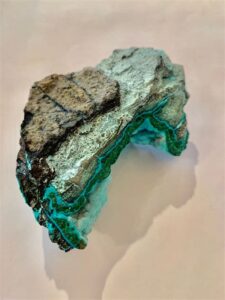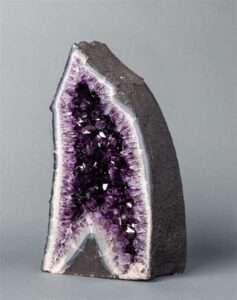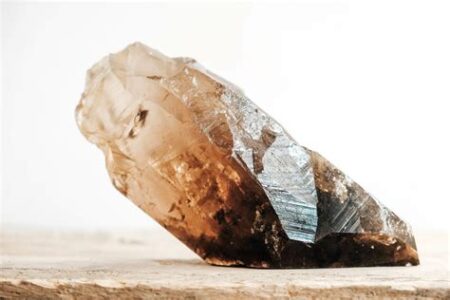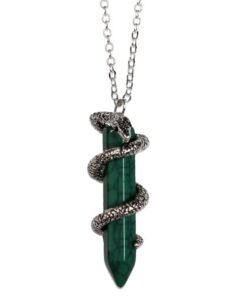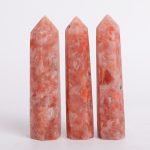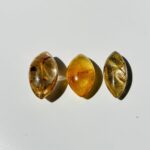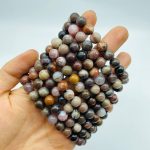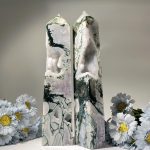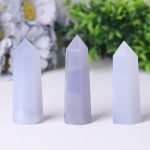Introduction
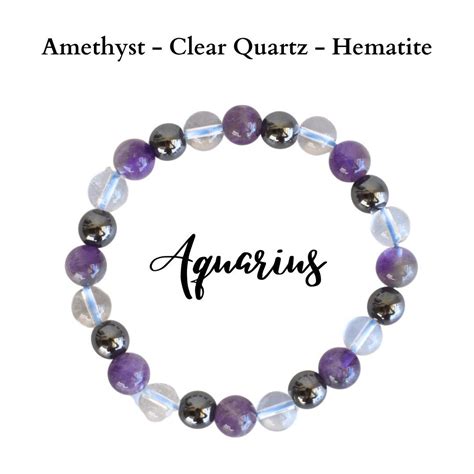
Sodalite blue, a captivating azure hue, evokes serenity, spirituality, and a profound connection to the universe. This gemstone has captivated humans for centuries, inspiring art, jewelry, and spiritual practices worldwide. This article delves into the multifaceted world of sodalite blue, examining its geological origins, metaphysical properties, and numerous applications.
Origin and Composition
Sodalite is a member of the sodalite group of minerals, primarily composed of sodium, aluminum, silicon, and oxygen. It forms in igneous and metamorphic rocks, often associated with other sodium-rich minerals such as nepheline and albite. The characteristic blue color of sodalite is attributed to the presence of sulfur ions within its crystal structure.
Metaphysical Properties
In the realm of metaphysics, sodalite blue is believed to possess potent healing and transformative properties. It is associated with the third eye chakra, the center of intuition and wisdom. Many practitioners believe that sodalite enhances psychic abilities, promotes clarity of thought, and facilitates spiritual growth.
Healing Benefits
Emotional Healing: Sodalite blue is said to soothe emotional distress, reduce anxiety, and dispel negative emotions. It is believed to promote balance, harmony, and a sense of inner peace.
Mental Healing: Some proponents of crystal healing attribute mental clarity and focus to sodalite blue. It is believed to stimulate the mind, improve memory, and enhance analytical abilities.
Physical Healing: Although scientific evidence is lacking, anecdotal reports suggest that sodalite blue may alleviate headaches, respiratory issues, and lymphatic system disorders. It is also believed to promote restful sleep and reduce stress-related symptoms.
Applications
The allure of sodalite blue extends beyond its metaphysical properties. Its unique color and versatility have led to numerous applications in various fields:
Jewelry and Adornment
Sodalite blue is a popular choice for jewelry, ranging from delicate earrings to bold necklaces and bracelets. Its rich azure hue pairs well with silver, gold, and other metals, creating stunning and eye-catching pieces.
Home Décor and Interior Design
The calming effect of sodalite blue makes it an ideal choice for home décor. It is frequently used in tiles, countertops, and decorative items to create a serene and inviting atmosphere.
Architectural Applications
The durability and aesthetic appeal of sodalite blue make it suitable for architectural applications. It is often used in facades, flooring, and decorative elements to add a touch of sophistication and tranquility.
Art and Sculpture
Sodalite blue has inspired numerous works of art and sculpture. Its depth of color and natural beauty captivate artists, who use it to create stunning sculptures, paintings, and other artistic expressions.
New Applications
The potential applications of sodalite blue continue to expand with each passing day. Research is underway to explore its use in:
- Battery technology: Enhancing the efficiency of lithium-ion batteries.
- Water filtration: Developing advanced membranes for water purification.
- Medical imaging: Improving the contrast and resolution of medical imaging techniques.
- Nanoelectronics: Creating new types of electronic devices with enhanced performance.
Industry Statistics and Market Segmentation
The global gemstone market is projected to reach $27.3 billion by 2027, with a significant portion driven by the demand for sodalite blue. The market is segmented based on end-use applications:
| Application | Market Share (%) |
|---|---|
| Jewelry | 45% |
| Home Décor | 25% |
| Architectural | 15% |
| Art and Sculpture | 10% |
| Other | 5% |
Customer Wants and Needs
Customers seeking sodalite blue are driven by a variety of wants and needs:
Emotional Needs: They desire a gemstone that evokes serenity, balance, and inner peace.
Spiritual Needs: They seek a connection to the third eye chakra and the higher realms of consciousness.
Aesthetic Needs: They appreciate the unique blue color, which adds a touch of elegance and sophistication to their jewelry and décor.
Customer Pain Points
Potential customers may encounter certain pain points when considering sodalite blue:
Cost: Sodalite blue can be a relatively expensive gemstone, especially for larger pieces or high-quality specimens.
Availability: Natural sodalite blue is a finite resource, and its availability can fluctuate depending on mining and market conditions.
Authenticity: There are concerns about fake or treated sodalite blue being sold in the market, which can result in customer dissatisfaction.
Strategies for Effective Marketing
To effectively market sodalite blue, businesses should consider the following strategies:
- Highlight emotional and spiritual benefits: Emphasize the transformative properties and positive impact on well-being.
- Showcase versatility: Demonstrate the gemstone’s adaptability in various applications, from jewelry to interior design.
- Ensure authenticity: Implement measures to guarantee the authenticity of the sodalite blue sold, such as certification or ethical sourcing.
- Educate customers: Provide comprehensive information about the gemstone’s origins, properties, and applications to foster informed decision-making.
- Offer personalized experiences: Create opportunities for customers to connect with the gemstone on a personal level, such as through guided meditations or therapeutic sessions.
Conclusion
Sodalite blue, with its captivating hue and transformative properties, has captivated humans for centuries. Its applications extend far beyond its metaphysical value, making it a versatile gemstone with endless possibilities. By understanding the wants and needs of customers and employing effective marketing strategies, businesses can harness the power of sodalite blue to create meaningful connections and drive industry growth.



